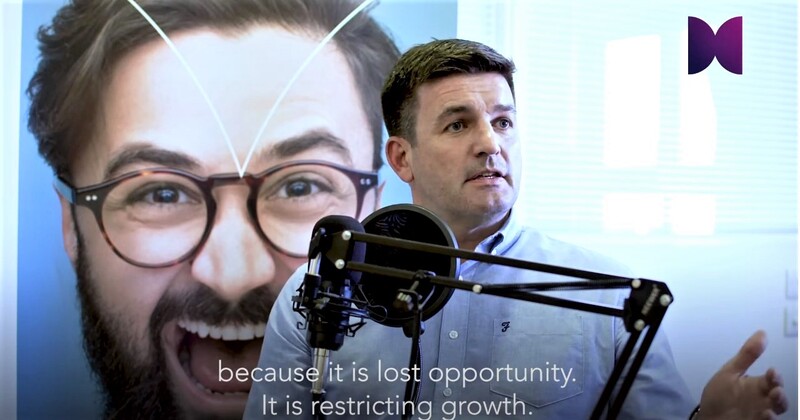For recruitment firms, when exploring new methods of communication and increasing brand optimisation, a podcast series could be a fantastic platform to attract new clients and candidates, as well as supporting existing ones.
Mandy Watson, founder and director of recruitment firm, Ambitions Personnel, launched The Ambitions Podcast last year. Featuring her team of specialists and external guests, the podcast covers a range of recruitment topics and workforce issues. A successful initiative for her business and an opportunity to highlight her team’s expertise, Mandy shares five factors other recruiters should consider before launching their own podcast series.
1. Content - keeping subjects simple will create better insights
Recruitment is a promising niche for a podcast series, as it is something everyone has experienced, whether they are an employer or candidate. But sometimes, the broader the subjects, the more pitfalls there are.
It’s easy to weaken content by trying to cover too much.
For example, if the focus of an episode was to be advice for candidates, then instead of trying to cover CV writing, cover letters and interview prep in one episode, narrow it down. Being more specific will create a better quality of content and more actionable advice.
2. Audience - the target listener needs room to grow
Podcast content needs to be planned accordingly to the listener and what will enrich them.
The listeners of a recruitment podcast are going to be either candidates currently looking for jobs or existing employers and HR professionals. One podcast series can cater to both by keeping topics and advice interchangeable. For example, an episode on interview types will appeal to both employers and applicants.
Once a recruiter becomes more accustomed to running a podcast, they can broaden their content and audience. The primary audience will always be clients and candidates, but subjects could include issues surrounding new legislation and community to attract local businesses.
3. Speakers - a lack of confidence and willingness will scream volumes
Inevitably, a recruitment podcast cannot be created if it hasn’t any recruitment specialists to speak on it.
This can be a challenge as speaking confidently when being recorded is a skill. Someone may be a brilliant recruitment or HR specialist, but if they’re uncomfortable being recorded, then that is an issue.
Podcast speakers need to be engaging and knowledgeable, so speakers need time to prepare, but they should not be heavily scripted as it sounds unauthentic.
Inviting external speakers will also widen discussion points, as well as the audience listening if their guests share the podcast with their own audience.
4. Production - someone else can take care of the technicalities
There are many different styles of podcast, but for someone new to the concept, and especially a recruiter, a natural conversational format is a good place to start.
The technical and production element should not deter a recruiter from creating a podcast series. Recording, editing and publishing a podcast will not be something most recruiters are highly experienced in, so it’s wise to onboard an external specialist.
In addition to filming and post-production, an external specialist can also advise on the best platforms to host a recruitment podcast.
This will mean considering the budget and the ROI; however, in addition to improving the quality and efficiency of production, a third party will also save on the expense of having to purchase podcast equipment and software.
5. Scheduling - timing is key to multiple factors of developing a podcast series
30-45 minutes should be allowed to record a podcast episode that will run between 10-20 minutes. So, if one series was to contain 10 episodes, filming could be completed within a typical 9-5 recruitment day.
Provide the filming schedule to all those involved with breaks factored in, as if speakers are drained it will be apparent.
It’s crucial to consider how often episodes will be released is also essential. All at once? Once a week? Once a month? The marketing campaign needs to be structured around this.
As soon as all the episodes have been released, how long will it be before a new series is created?
--
https://beyourown.org/single-post/2021/01/16/5-factors-to-consider-before-launching-a-recruitment-podcast-by-mandy-watson/

